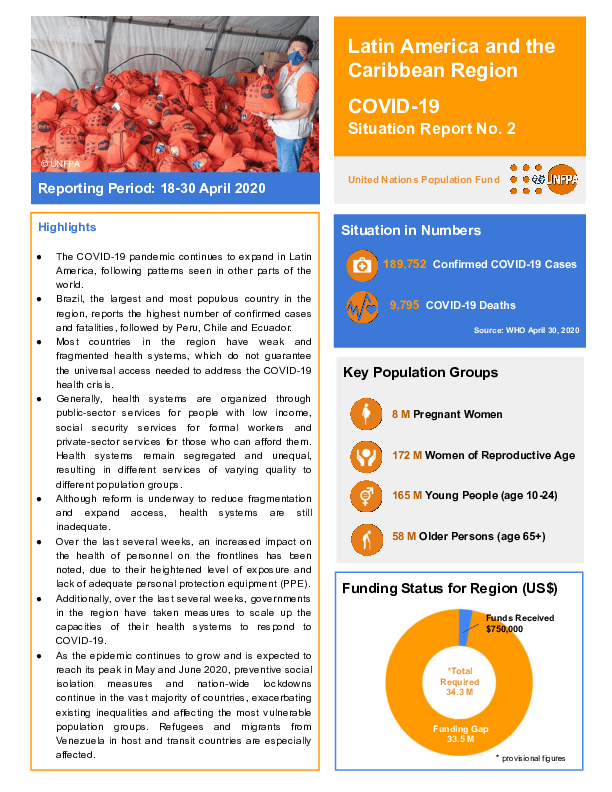
Resources
COVID-19 Situation Report No. 2 for UNFPA Latin America and the Caribbean
Resource date: May 2020
Author: UNFPA

Resources
Resource date: May 2020
Author: UNFPA
"UNFPA is working in humanitarian and development contexts in Latin America and the Caribbean (LAC), actively participating in the UN system’s support to national governments’ response to COVID-19, and follows the leadership of the Resident Coordinators’ Offices and the technical leadership of the Pan American Health Organization and the World Health Organization (PAHO/WHO). In humanitarian countries, the humanitarian country team is often using the humanitarian structure already in place to cope with COVID-19."
"The Global Humanitarian Response Plan covers multiple countries with humanitarian needs: Colombia, Haiti and Venezuela, which have national humanitarian response plans. In addition, 17 more countries are covered by the Refugee and Migrant Response Plan. The latter plan is currently being revised to adapt to the COVID-19 context. This revision will focus on i) visibility of the needs of refugees and migrants in the response to COVID-19 in the region; ii) ensuring access of humanitarian actors and availability of humanitarian supplies to refugee and migrant populations; and iii) ensuring access to lifesaving services for refugees, migrants and host communities, with priority on health and protection."
"Coordination and partnerships"
"Under the political leadership of the Resident Coordinators Offices and the technical leadership of PAHO/WHO, UNCTs are coordinating the United Nations cooperation and support to national governments in the region through coordination meetings, communication, information and technical assistance."
"UNFPA actively participates in humanitarian coordination mechanisms (especially health and protection clusters), providing technical assistance to government counterparts and strategic allies, and promoting advocacy and policy dialogue to ensure continuity of SRH services. This includes pre and postnatal care, safe pregnancies, access to contraceptives, continuity of GBV prevention and response services, protection of frontline health personnel, including midwives, and generation and analysis of relevant disaggregated data."